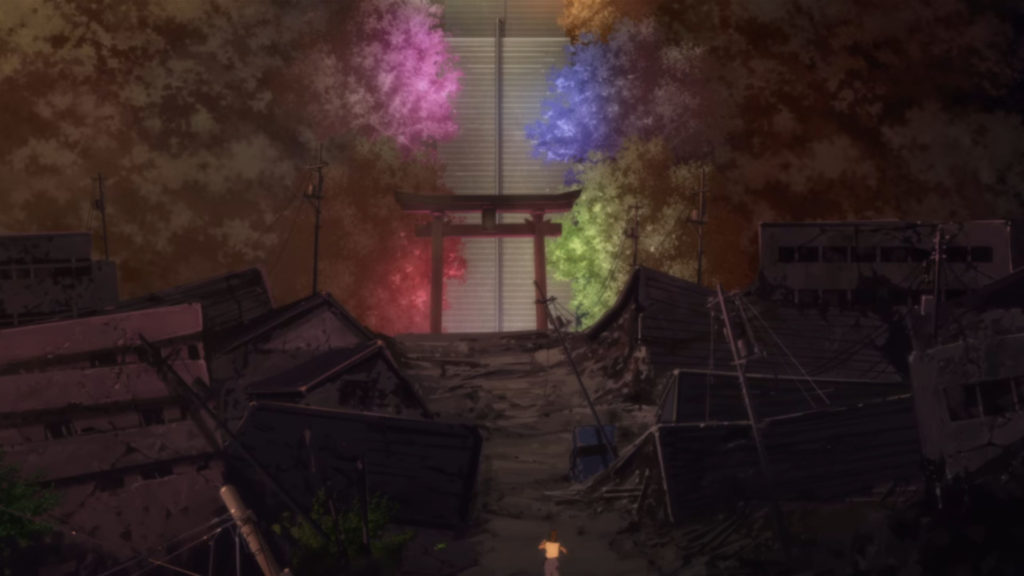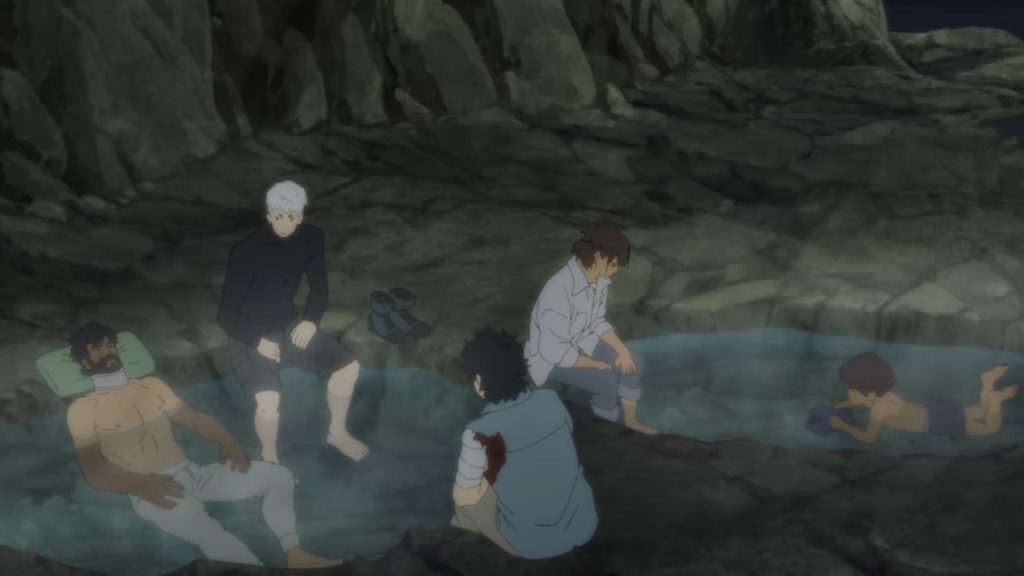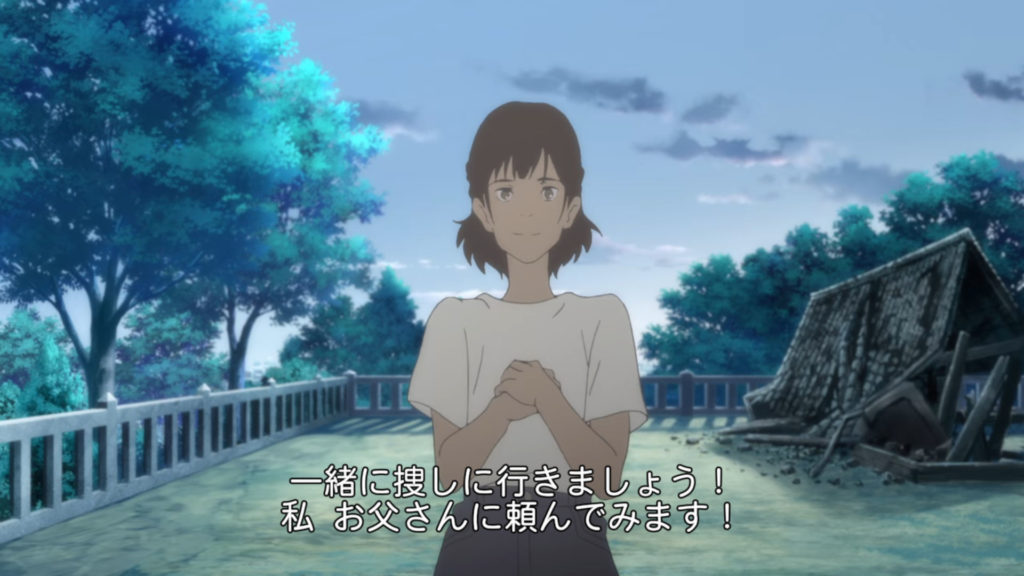I paused my doomscroll for Japan Sinks 2020
by Bob Johnson

As Howard Mohr taught us, it could always be worse more often than it could be better. I know we’re running out of fingers and covid toes to count how 2020 has taken the reality of our global civilization and placed it into a blender that is decidedly not filled with ice cubes and strawberries… Wouldn’t it be cathartic if we could go back to disasters that affected just one country?
Well, slamming like an oversized asteroid onto Netflix this past July 9 was “Japan Sinks 2020”, a little ditty about 100 million people being flipped casually into the dead slate Pacific. We follow the story of the Mutoh family as they attempt to do the best they can, each starting from a familiar place in the routine of modern life – an aircraft on final approach, a construction scaffold, a locker room, a schoolyard. Then the earthquake drops, and we go instantly from slice-of-life to slice-of-death. Moving forward from here will take luck and grit.
The show is cut and paced for Netflix. That means some liberties taken with episode runtimes – most of the 10 eps running longer than 22 minutes – and cliffhangers at virtually all the episode ends, some bending the plot more than others. Fortunately, the subject matter itself provides decent cover for these relatively minor issues. Survival is not a perfect science, after all. Given infinite time and resources, we’d all make better calls. But even the smartest, most experienced people make mistakes when they’re in a rush and underequipped.
Some disaster epics try to shoehorn in some romance; best hold your breath on that. A touch of “senpai notice me” is there, if only to demonstrate its fragility and futility in the worst of times. But disaster can also encourage an unhealthy, devil-may-care, time-pressured attitude toward relationships, adding further trauma for the show to explore.
While it breaks the mould in many respects, it still has fun expressing its creativity, and isn’t shy about taking a brief tangent for a bit of comic relief. The show achieves its ‘peak anime’ moment during one of these denouements: a rap battle for the honour of Japan at a hot spring that is also a beach.

Artwise? Colour is used effectively to set the mood; vibrant and bright in hopeful times, subdued and dark when there’s danger or pessimism. The drawing style can get a rough-in at times, but it’s never jarring given the sketchy nature of the situations our heroes find themselves in.
The varied locales are notable given the road trip nature of the show. There’s familiar sights to anime fans, like Mount Fuji, or shrines for Shinto or Buddhism, but the show goes to lengths to get it right for everything from seaport docks, to lonely mountainside gas stations, to the utopian commune of Shan City.
The voice acting is sufficient, though you’ll perhaps notice more Canadian accent here than Kansai accent. While Netflix may lack the bench needed to copy the idiosyncratic localization tactics of anime’s familiar Texas-based dubhouses, they make up for it in volume, expanding the limits of what’s possible for dubs and subs beyond English, but also Spanish, French, and others, as well as the holy grail for the true weeaboo: subtitles *IN JAPANESE*.

Japan Sinks 2020 is a fine addition to the Japanese tradition of tokusatsu disaster film, using the imagined disaster to pierce the solicitous, anachronistic exceptionalism of the hermit kingdom and challenge it to actually internalize the racial and international harmony that Japan always says it wants to see in the world at large. When even terra firma is impermanent, what remains to cling to, except for each other?
The show also says, with more than a wink to Justy Ueki Tylor, that Luck is the most important factor in surviving a disaster so large it destroys everything about you and your way of life.
If your stomach turns at the thought of being saved by the YouTube Generation with their selfies and drones and paragliding and pet robots, then you might not see the finale as particularly happy or heroic. Still, we are left convinced that Japan, in whatever form it has taken after this terrible crisis, is still a notable cultural force. Even diminished, it can still be remembered in its former glory, and aspire to hang in there in the new age.
Between this and Keep your hands off Eizouken!, 2020 is officially the year of Science Saru. I can’t say that it is the most uplifting content for these challenging times. But it does manage to stick the landing.
Maybe Look It Up:
Japan Sinks 2020 (2020) 10 episode Original Net Animation
Based on the novel Japan Sinks by Sakyo Komatsu
Produced by Science Saru, Licenced by Netflix
